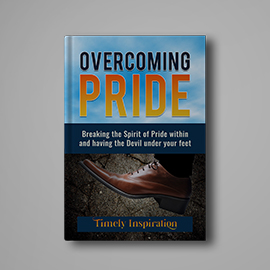Have you ever wondered about the true meaning of the passion of Christ? This is a term commonly used during Easter, as it refers to the week of the crucifixion and resurrection of our Lord Jesus Christ. Indeed, the passion of Christ is a subject for discussion in most assemblies of believers. However, very few people talk about the significance of the suffering Jesus went through to purchase the ultimate price for our salvation. In this article, you shall be learning about the true meaning of the passion of Jesus and how it applies to your life.

The Passion of Christ
The original meaning of the term “Passion” comes from the Latin word “Pati,” which can be translated in the English language as “to endure” or “to suffer.” While it is true that most people often use the term passion to mean strong emotions for something or someone. However, in biblical theology, the term passion refers to the suffering Jesus went through regarding the substitutionary work and redemption of man.
Events in the Passion of Christ
Contrary to people’s opinion that thinks the passion of Christ started from the Garden of Gethsemane to His death; The passion of Christ started when Jesus took the sinful nature of man in the upper room (John 6:56) to when he descended to hell. Here are the key events that made it named the passion of Christ:
Taking the Sinful Nature of Man:
Jesus was born sinless because the Holy Spirit conceived him as God caused Mary’s egg to create life miraculously, and the normal process of pregnancy followed. So, Jesus was born without the input of a man’s seed, and Joseph was only a foster father (Luke 1:35). More to it is that he walked on this earth without committing a single sin – thus, Jesus Christ is without and didn’t commit any sin (1 John 3:5, 1 Peter 2:22).
However, man’s sin was imputed on Jesus by partaking in the communion with the disciples. As the bible says, He that eateth my flesh, and drinketh my blood, dwelleth in me, and I in him (John 6:56). So, this scripture clearly explains the doctrine of imputation; that is, the righteousness of Christ imputed on man, and the sin of man was imputed on Jesus, as also explained in 2 Corinthians 5:2 (God made him who had no sin to be sin for us, so that in him we might become the righteousness of God).
The Garden of Gethsemane:
The garden at Gethsemane is the place where Jesus really prayed and sorrowed for the things to come ahead. Jesus sorrowed greatly in the garden of Gethsemane for the following reasons;
- Jesus is about to face the full wrath of God for the sin of man.
- The Holy Spirit is about to depart from Jesus for the very first time in his existence.
- Foreknowing the lonely path Jesus is about to take; the torture and humiliation of being naked and crucified without having done never a sin.
- Jesus was overwhelmed with sorrow to the point of death because the battle he is about to face is going to be more than physical; it would be spiritual and emotional.
Also, in the garden of Gethsemane, Jesus prayed earnestly (Matthew 26:39), crying to the Father to “let this cup pass from me, if it is possible.” The prayer of Jesus reveals Jesus negotiating with the Father if any other path can be taken to save man. Unfortunately, there is no other way except the sacrifice of Jesus to redeem the world (John 1:29). Also, the prayer continues, “Yet not as I will, but as you will.” At this point, Jesus was committed to the will of God by conquering the flesh and keeping it in subjection to the spirit.
The Betrayal and Abandonment of Jesus:
After the intense prayer in the garden of Gethsemane, Jesus was betrayed by his own disciple (Judas Iscariot) to the Jewish authorities. To identify Jesus from his disciples, Judas betrays Jesus by kissing him, as he had planned (Mark 14:43-46). Jesus was to be taken into custody by a squad of armed men sent by Jewish leaders. One of the disciples, Peter, draws a sword and slashes one of the armed men, named Malchus, the high priest’s servant (Luke 22:51).
However, Jesus forbids further violence and heals the injured armed man’s ear. As a result of the arrest by the Jewish authorities, the disciples of Jesus ran away and abandoned him. Only John and Peter followed Jesus and watched from afar as He was brought before the high priest for trial. In the high priest’s courtyard, Peter denied three times knowing Jesus, as Jesus had predicted.
The Trials of Jesus:
It is important to note that according to the Gospels, Jesus was subjected to a total of seven trials with both Jewish and Roman officials. These were attempts to find a singular act of fault in his life and ministry because he had done nothing to deserve to be arrested. Regardless of his innocence, Jesus was put to death by the Roman governor, Pontious Pilate, whom the Jewish leaders compelled. Pontious Pilate, however, washed his hands to demonstrate his innocence in the killing of Jesus’ blood by the Jewish rulers and the assembled crowd (Matt. 27:24; Mark 15:9-11; Luke 23:14; John 18:38-40; 19:12).
The Physical Assualt of Jesus:
Jesus was held in custody night and day. He was mocked and beaten by the men who held him, hostage, during those times. They also blindfolded him, hit him at different times, and made a mockery of him to prophesy on who is it that struck him. There were numerous additional accusations against him, including “blaspheming him” and “insulting him.” In addition, Jesus was whipped with a whip made of braided bone or lead balls, leaving many open wounds. He was beaten, mocked as King of the Jews, given a crown of thorns, and dressed in a purple robe. He was also asked to carry the cross outside Jerusalem known as Golgotha.
The Crucifixion of Jesus:
During the Roman crucifixion, Jesus was stripped naked and nailed three times with an iron nail about 7-9 inches long. The two nailed were through each wrist, and the last was on the ankle. As recorded in the Bible, Jesus was nailed on a cross with two criminals: one on each side. (Luke 23:32-33). After crucifying Jesus, hours later, the soldiers checked if Jesus was still alive by stabbing him in the side. The Roman soldiers saw blood and water gushing out of his body and confirmed him dead. Joseph of Arimathea, a follower of Christ and an influencer man with the Roman governor, pleaded that Jesus’ body is taken down and buried.
Jesus gave seven specific recorded sayings at the cross before His death, a death later confirmed by Roman soldiers piercing His side. Thus, Jesus completed the job of fulfilling all righteousness on the cross by saying “It is finished” (John 19:30).
Descension into Hell:
The passion of christ is not completed until Jesus descended into hell to conquer Satan, Sin, Death, the grave, and Hell, known as Sheol/hades (which means the place of the dead). The bible says in Colossians 2:15, “And having spoiled principalities and powers, he made a shew of them openly, triumphing over them in it.” So, Jesus, after satisfying the heart of the father and other legal claims as well as restoration of relationship, He completely destroyed and disarmed the rulers and authorities of darkness and put them to open shame.
Why it is Important to Commemorate the Passion of Christ
The passion of Christ is an important event to commemorate because of the following reasons;
- It reveals the true love of God towards humanity (1 John 4:8, John 3:16, and John 15:13)
- The passion of Christ demonstrates the extent God went to save sinners (Romans 5:8)
- The passion of Christ tells believers the price Jesus has to pay for our salvation
- The passion of Christ reveals how important every unbeliever is toward God.
In conclusion, several Christian books and movies have been released to tell the world about the ultimate Christ paid for humanity due to its significance. You can kindly drop your suggestions in the comment section or contact us through our contact page for more spiritual upliftment. If you need prayers, reach out to us via the prayers section.
April 19, 2022
What is the Passion of Jesus Christ?
Have you ever wondered about the true meaning of the passion of Christ? This is a term commonly used during Easter, as it refers to the week of the crucifixion and resurrection of our Lord Jesus Christ. Indeed, the passion of Christ is a subject for discussion in most assemblies of believers. However, very few people talk about the significance of the suffering Jesus went through to purchase the ultimate price for our salvation. In this article, you shall be learning about the true meaning of the passion of Jesus and how it applies to your life.

The Passion of Christ
The original meaning of the term “Passion” comes from the Latin word “Pati,” which can be translated in the English language as “to endure” or “to suffer.” While it is true that most people often use the term passion to mean strong emotions for something or someone. However, in biblical theology, the term passion refers to the suffering Jesus went through regarding the substitutionary work and redemption of man.
Events in the Passion of Christ
Contrary to people’s opinion that thinks the passion of Christ started from the Garden of Gethsemane to His death; The passion of Christ started when Jesus took the sinful nature of man in the upper room (John 6:56) to when he descended to hell. Here are the key events that made it named the passion of Christ:
Taking the Sinful Nature of Man:
Jesus was born sinless because the Holy Spirit conceived him as God caused Mary’s egg to create life miraculously, and the normal process of pregnancy followed. So, Jesus was born without the input of a man’s seed, and Joseph was only a foster father (Luke 1:35). More to it is that he walked on this earth without committing a single sin – thus, Jesus Christ is without and didn’t commit any sin (1 John 3:5, 1 Peter 2:22).
However, man’s sin was imputed on Jesus by partaking in the communion with the disciples. As the bible says, He that eateth my flesh, and drinketh my blood, dwelleth in me, and I in him (John 6:56). So, this scripture clearly explains the doctrine of imputation; that is, the righteousness of Christ imputed on man, and the sin of man was imputed on Jesus, as also explained in 2 Corinthians 5:2 (God made him who had no sin to be sin for us, so that in him we might become the righteousness of God).
The Garden of Gethsemane:
The garden at Gethsemane is the place where Jesus really prayed and sorrowed for the things to come ahead. Jesus sorrowed greatly in the garden of Gethsemane for the following reasons;
- Jesus is about to face the full wrath of God for the sin of man.
- The Holy Spirit is about to depart from Jesus for the very first time in his existence.
- Foreknowing the lonely path Jesus is about to take; the torture and humiliation of being naked and crucified without having done never a sin.
- Jesus was overwhelmed with sorrow to the point of death because the battle he is about to face is going to be more than physical; it would be spiritual and emotional.
Also, in the garden of Gethsemane, Jesus prayed earnestly (Matthew 26:39), crying to the Father to “let this cup pass from me, if it is possible.” The prayer of Jesus reveals Jesus negotiating with the Father if any other path can be taken to save man. Unfortunately, there is no other way except the sacrifice of Jesus to redeem the world (John 1:29). Also, the prayer continues, “Yet not as I will, but as you will.” At this point, Jesus was committed to the will of God by conquering the flesh and keeping it in subjection to the spirit.
The Betrayal and Abandonment of Jesus:
After the intense prayer in the garden of Gethsemane, Jesus was betrayed by his own disciple (Judas Iscariot) to the Jewish authorities. To identify Jesus from his disciples, Judas betrays Jesus by kissing him, as he had planned (Mark 14:43-46). Jesus was to be taken into custody by a squad of armed men sent by Jewish leaders. One of the disciples, Peter, draws a sword and slashes one of the armed men, named Malchus, the high priest’s servant (Luke 22:51).
However, Jesus forbids further violence and heals the injured armed man’s ear. As a result of the arrest by the Jewish authorities, the disciples of Jesus ran away and abandoned him. Only John and Peter followed Jesus and watched from afar as He was brought before the high priest for trial. In the high priest’s courtyard, Peter denied three times knowing Jesus, as Jesus had predicted.
The Trials of Jesus:
It is important to note that according to the Gospels, Jesus was subjected to a total of seven trials with both Jewish and Roman officials. These were attempts to find a singular act of fault in his life and ministry because he had done nothing to deserve to be arrested. Regardless of his innocence, Jesus was put to death by the Roman governor, Pontious Pilate, whom the Jewish leaders compelled. Pontious Pilate, however, washed his hands to demonstrate his innocence in the killing of Jesus’ blood by the Jewish rulers and the assembled crowd (Matt. 27:24; Mark 15:9-11; Luke 23:14; John 18:38-40; 19:12).
The Physical Assualt of Jesus:
Jesus was held in custody night and day. He was mocked and beaten by the men who held him, hostage, during those times. They also blindfolded him, hit him at different times, and made a mockery of him to prophesy on who is it that struck him. There were numerous additional accusations against him, including “blaspheming him” and “insulting him.” In addition, Jesus was whipped with a whip made of braided bone or lead balls, leaving many open wounds. He was beaten, mocked as King of the Jews, given a crown of thorns, and dressed in a purple robe. He was also asked to carry the cross outside Jerusalem known as Golgotha.
The Crucifixion of Jesus:
During the Roman crucifixion, Jesus was stripped naked and nailed three times with an iron nail about 7-9 inches long. The two nailed were through each wrist, and the last was on the ankle. As recorded in the Bible, Jesus was nailed on a cross with two criminals: one on each side. (Luke 23:32-33). After crucifying Jesus, hours later, the soldiers checked if Jesus was still alive by stabbing him in the side. The Roman soldiers saw blood and water gushing out of his body and confirmed him dead. Joseph of Arimathea, a follower of Christ and an influencer man with the Roman governor, pleaded that Jesus’ body is taken down and buried.
Jesus gave seven specific recorded sayings at the cross before His death, a death later confirmed by Roman soldiers piercing His side. Thus, Jesus completed the job of fulfilling all righteousness on the cross by saying “It is finished” (John 19:30).
Descension into Hell:
The passion of christ is not completed until Jesus descended into hell to conquer Satan, Sin, Death, the grave, and Hell, known as Sheol/hades (which means the place of the dead). The bible says in Colossians 2:15, “And having spoiled principalities and powers, he made a shew of them openly, triumphing over them in it.” So, Jesus, after satisfying the heart of the father and other legal claims as well as restoration of relationship, He completely destroyed and disarmed the rulers and authorities of darkness and put them to open shame.
Why it is Important to Commemorate the Passion of Christ
The passion of Christ is an important event to commemorate because of the following reasons;
- It reveals the true love of God towards humanity (1 John 4:8, John 3:16, and John 15:13)
- The passion of Christ demonstrates the extent God went to save sinners (Romans 5:8)
- The passion of Christ tells believers the price Jesus has to pay for our salvation
- The passion of Christ reveals how important every unbeliever is toward God.
In conclusion, several Christian books and movies have been released to tell the world about the ultimate Christ paid for humanity due to its significance. You can kindly drop your suggestions in the comment section or contact us through our contact page for more spiritual upliftment. If you need prayers, reach out to us via the prayers section.
Recommended Books
These Books Will Change Your Life for Good
- DISCOVERING THE POWER OF A TRANSFORMED MIND: A Daily Guide to Spiritual Transformation and Renewing of Your Mind Power through God’s Words
- PRAYERS FOR FINANCES & PROSPERITY: Discover Simple and Powerful Prayers to Attract Supernatural Financial Breakthrough
- FASTING FOR DELIVERANCE HEALING & SPIRITUAL BREAKTHROUGH: Breaking Through The First and Second Heaven for Manifestation of Blessings and Deliverance
- Praying for My Future Husband: 21 Powerful and Effective Prayer Guide on How to Pray for that Godly Partner You desire in your Life
- How To Hear The Voice of God Clearly and Recognize It: A Powerful and Effective Guide to Hearing the Voice of God More Often Kindle Edition
- Praying the Blood of Jesus as Umbrella of Protection: Understanding the Mystery Behind the Blood of Jesus and How to Use it to Activate God’s Uncommon Favor in Your Life
- Prayers for Your Adult Children: A Powerful Breakthrough Prayers To Pray For Your Adult Children’s Protection and Progress in Life
- Breaking Evil Altars and Generational Curses in your Life: How to use Prophetic Connections to Destroy Evil Altars and Familiar Spirits Program Against Your Life and Family
- Praying the Book of Psalms: Discover The Hidden Powers of Praying the Psalms to Activate God’s Uncommon Favor, Financial Blessings, and Protection in Your Life
- Prayers Against Household Witchcraft Activities and Manipulations: A Powerful Breakthrough Prayers to Destroy Witchcraft Attacks and Familiar Spirits Program Against Your Life and Family
- 7 Days Fasting and Prayers for Deliverance: A Daily Guide to Spiritual Transformation, Powerful Prayers and Declarations for a Breakthrough in Every Area of Your Life
- Prayers Against Demonic Cobwebs Manipulation: A Powerful Breakthrough Prayers to Remove Spiritual Cobwebs, Stagnation, Witchcraft Attacks, and Evil Guardian Demons Monitoring Your Life
- Deliverance from Demonic and Spiritual Bondage: Powerful Prophetic Prayers that Destroy Curses, Spells, Drive out Demons and Stubborn Evil Spirits Troubling Your Life and Family
- Deliverance From Demonic Strongholds: Overcoming the Spirit of Oppression And Stop Demonic Activities Around Your Life, Family, Finances, Destiny and Get Total Freedom from Devil Manipulative Thoughts
- Biblical Principles for Financial Abundance: Unlocking The Bible’s Secret to Financial Wealth, Breakthrough, Freedom, and Success into Your Life
- Powerful Prayers to Sharpen Your Spiritual Life: The Discernment into Deep Spiritual Questions and Finding Answers to Sharpen Your Spiritual Senses
- Financial Breakthrough Prayers For Abundance And Prosperity: A Powerful Prophetic Prayers and Declarations For Financial Increase, Favor, Career Breakthrough and Miracle in your Finances
- Overcoming Familiar Spirit and Evil Patterns: Understanding How Monitoring Spirits Gain Access into your Life and Best Powerful Self-Deliverance Prayers to Free Yourself from Captivity of Enemies
- Prayers to Destroy the Spirits of Delay and Stagnation: How to Break the Chains of Demonic Delay, Struggle, and Setback to Experience God’s Timeless Blessings in Your Life and Family
- Divine Healing From Diseases and Infirmities: Understanding the Effectiveness of Divine Health and Powerful Prophetic Prayers for Supernatural Healing, Deliverance & Total Restoration from God
DONATE TO OUR OUTREACH
Thanks to all who keep sending us donations through our Donation Page.
If you feel strongly guided to support our work and it’s beneficial to you, you can support us through our Donate Page. On behalf of our entire team, we would like to sincerely thank you for your generous gift to Timely Inspiration Outreach from different regions of the world. We are so grateful and God will continue to bless all your endeavors.
Download These Powerful Books for FREE
Dealing with Family Drama
Ways to Deal with Toixc Family Members without going Against God’s Words








